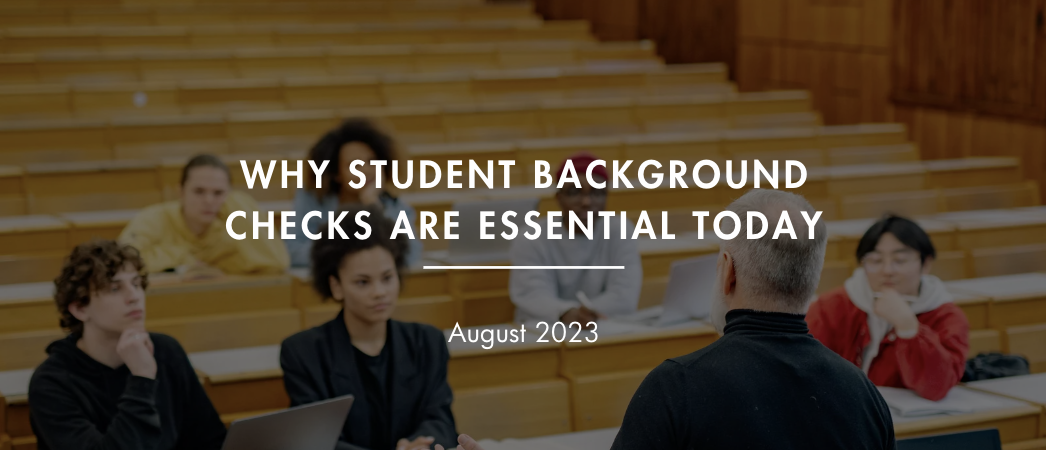In today’s dynamic educational landscape, institutions must place a strong emphasis on maintaining a safe and conducive learning environment for all students and staff. One essential tool that helps achieve this goal is performing background checks on prospective students. Background checks are comprehensive investigations into an individual’s criminal history, academic records, and personal character. By conducting these checks, educational institutions can ensure the safety of their campus community while also fostering a positive and enriching educational experience.
Ensuring Campus Safety
The safety of students, faculty, and staff is the utmost priority for any educational institution. By performing background checks on prospective students, institutions can identify potential risks or red flags that may pose a threat to the campus community. Criminal records, violent behavior, or other concerning incidents from a student’s past can be detected during the screening process, allowing the institution to take necessary precautions or, in some cases, deny admission to protect the safety of others.
Safeguarding Vulnerable Groups
Many educational institutions cater to a diverse range of students, including minors, seniors, and other vulnerable populations. Background checks help identify applicants who may have a history of offenses related to abuse, harassment, or other violent behaviors. By filtering out potential risks, institutions can create a safer and more secure environment for everyone, especially those who are more susceptible to harm.
Requiring Before Granting Scholarships, Internships and Externships
So many schools offer students scholarships, sometimes as an enticement for them to enroll at their institution. It may be due to the student’s superior sports abilities, educational prowess, or artistic skills. However, not all talented people are necessarily “good” individuals. Many of them may have a dangerous past or may have a presence in social media that espouses hate, or other characteristics that are contrary to the school’s values.
In addition to granting scholarships, schools often have internships and externships with outside companies. Schools can even promote to these outside companies that they will perform background checks to help persuade these companies to employ interns and externs. The school can even require the student to pay a background check fee, similar to a lab fee for other courses, thus passing through the background check expense to the student. This helps create a real-world environment for students to obtain actual work experience, which is a winner for them and society.
Whether it is granting a scholarship, internship, or externship, by performing student background checks, schools can help prevent bad press from damaging the school’s reputation, as well as further protecting their educational community members.
Upholding Ethical Standards
Educational institutions play a critical role in shaping young minds and contributing to society. By conducting background checks, they demonstrate their commitment to upholding ethical standards and responsible leadership. The process ensures that individuals with a dangerous history of unethical or unlawful behavior are not given the opportunity to influence or negatively impact the campus community.
Protecting the Institution’s Reputation
A single incident involving a student with a problematic history can have a far-reaching impact on an institution’s reputation. News of such incidents can spread quickly through viral social media and other channels, tarnishing the image of the educational institution. Performing background checks helps mitigate this risk and allows the institution to protect its brand and maintain a positive public perception.
Performing Student Background Checks are Essential Today
In conclusion, conducting background checks on prospective students is an indispensable step for educational institutions to ensure the safety, integrity, and overall success of their campus community. By identifying potential risks and supporting students appropriately, institutions can create an environment that fosters growth, learning, and personal development. Background checks are not just a protective measure; they are a commitment to maintaining the values of education, ethical conduct, and the welfare of all individuals involved.
When implementing student background checks, be sure to seek out a reliable background company that is also a consumer reporting agency (CRA). Schools have disclosure and authorization requirements under the FCRA (Fair Credit Reporting Act – the federal law that governs background checks). A reliable CRA can help facilitate this process in an FCRA-compliant manner with a variety of digital options.
Posted by: Rudy Troisi, L.P.I., President and CEO, Reliable Background Screening
Copyright © 2023, Reliable Background Screening, a Division of Marcett, Inc. All rights reserved.


